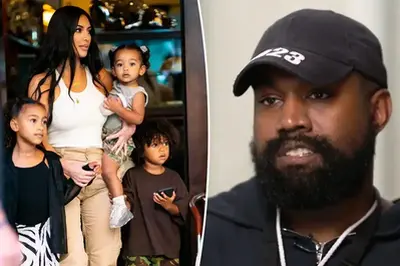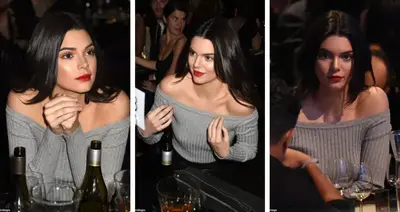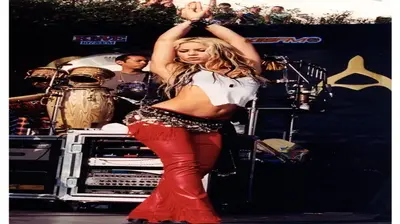Celebrity
Shakira becomes latest artist to sell rights to catalogue of hits
The Colombian singer Shakira has become the latest big name artist to cash in on her catalogue of hits, selling the publishing rights to the London-based music royalties investment firm Hipgnosis.
The most successful female Latin singer of all-time, with more than 80m album sales to her name, Shakira has sold the rights to her 145-song catalogue for an undisclosed sum. The three-time Grammy award winner’s string of hits, which began with the release of her first album in 1991 at the age of 13, include Hips Don’t Lie, Whenever, Wherever and the 2010 Fifa World Cup song Waka Waka.

“Being a songwriter is an accomplishment that I consider equal to and perhaps even greater than being a singer and an artist,” said Shakira. “At eight years old, long before I sang, I wrote to make sense of the world. I know Hipgnosis will be a great home for my catalogue.”
The streaming boom has encouraged investors to put their cash into companies like Hipgnosis, a London stock market-listed outfit, which receives a cut of the royalties from the songs it owns each time they are played on the radio, streamed, or used in places like department stores, as well as income from sales of albums, singles and use in TV adverts and films. Hipgnosis, which was co-founded by the legendary producer Nile Rodgers, has raised £1.2bn from investors since launching in 2018, and has acquired more than 120 catalogues to date.
Last month, Bob Dylan sold the publishing rights to his entire catalogue of 600 songs, including Blowin’ in the Wind and Knockin’ on Heaven’s Door, to Universal Music for an estimated $300m (£220m) in the biggest music publishing deal in decades.
Stars with evergreen hits such as Dolly Parton – who controls the rights to 3,000 songs including I Will Always Love You, the 1992 cover of which by Whitney Houston was a global phenomenon, and 9 to 5 – have said they are considering selling up as part of “estate planning” as they get nearer to the end of their careers. Others include Barry Manilow, Chrissie Hynde and Stevie Nicks, the Fleetwood Mac singer and solo artist who sold a majority stake in her catalogue for $100m to the music publisher Primary Wave.

Hipgnosis has said that it has already identified a pipeline of catalogues worth more than £1bn that it is in talks about buying this year. Last week, the company announced three deals paying an estimated $150m for a 50% share of the rights to Neil Young’s 1,180 songs, purchased the catalogue of the former Fleetwood Mac guitarist Lindsey Buckingham and reached a deal with the super-producer Jimmy Iovine.
Iovine, who co-founded the headphones maker Beats with Dr Dre which was subsequently snapped up by Apple for $3bn in the tech firm’s largest ever deal, has production rights to a 259-track catalogue that includes albums created with John Lennon, Bruce Springsteen and Tom Petty and the Heartbreakers. He also co-produced 8 Mile, the 2002 film starring Eminem, which included the mega-hit Lose Yourself, and the movie Get Rich or Die Tryin’, which starred the rapper 50 Cent.
as 2023 gathers pace, and you’re joining us from Vietnam, we have a small favour to ask. A new year means new opportunities, and we’re hoping this year gives rise to some much-needed stability and progress. Whatever happens, the Guardian will be there, providing clarity and fearless, independent reporting from around the world, 24/7.
Times are tough, and we know not everyone is in a position to pay for news. But as we’re reader-funded, we rely on the ongoing generosity of those who can afford it. This vital support means millions can continue to read reliable reporting on the events shaping our world. Will you invest in the Guardian this year?
Unlike many others, we have no billionaire owner, meaning we can fearlessly chase the truth and report it with integrity. 2023 will be no different; we will work with trademark determination and pᴀssion to bring you journalism that’s always free from commercial or political interference. No one edits our editor or diverts our attention from what’s most important.

With your support, we’ll continue to keep Guardian journalism open and free for everyone to read. When access to information is made equal, greater numbers of people can understand global events and their impact on people and communities. Together, we can demand better from the powerful and fight for democracy.
Whether you give a little or a lot, your funding is vital in powering our reporting for years to come. If you can, please support us on a monthly basis from just $2. It takes less than a minute to set up, and you can rest ᴀssured that you’re making a big impact every single month in support of open, independent journalism. Thank you.
-

 Celebrity3w ago
Celebrity3w agoTeresa Giudice puts Jeff Lewis on blast for ‘dissing’ her in awkward ‘WWHL’ moment
-

 Celebrity3w ago
Celebrity3w agoMillie Bobby Brown and Jake Bongiovi pack on PDA during honeymoon with his parents, Jon Bon Jovi and Dorothea Hurley
-

 Celebrity3w ago
Celebrity3w agoTravis Kelce rushes from Chiefs teammate’s California wedding to attend Taylor Swift’s Eras Tour concert in Dublin
-

 Celebrity3w ago
Celebrity3w agoSusan Sarandon’s daughter, Eva Amurri, marries chef Ian Hock
-
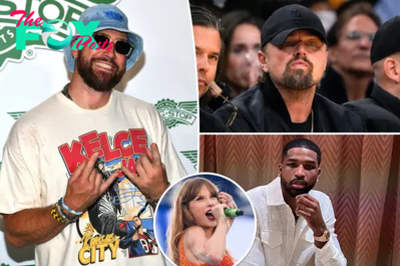
 Celebrity3w ago
Celebrity3w agoTravis Kelce hits up same club as Tristan Thompson, Leonardo DiCaprio while Taylor Swift performs in Ireland
-

 Celebrity3w ago
Celebrity3w agoZach Bryan brings out ‘Hawk Tuah’ girl to sing ‘Revival’ at Nashville concert
-

 Celebrity3w ago
Celebrity3w agoJennifer Lopez looks tense in LA after Ben Affleck moved things out of their $60M mansion amid marital woes
-
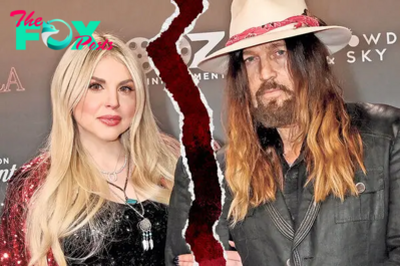
 Celebrity3w ago
Celebrity3w ago‘I was afraid to talk’ and had to ask permission to text: Firerose reveals Billy Ray Cyrus’ ‘strict rules’






